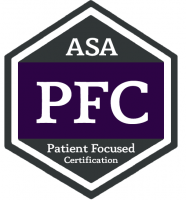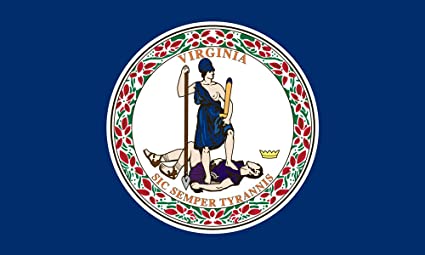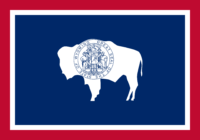In a press release sent out this morning, a new coalition announced their launch to “end the prohibition, criminalization, and overregulation of cannabis in the United States.” The Cannabis Freedom Alliance (CFA) says their core values include federal descheduling, criminal justice reform, “reentry and successful second chances,” promoting entrepreneurship in free markets and reasonable tax rates.
Who’s Behind the CFA?
 The organizations that founded the CFA are Americans for Prosperity (AFP), Mission Green/The Weldon Project, the Reason Foundation, and the Global Alliance for Cannabis Commerce (GACC). Take a look at that list and see if you recognize the names. AFP is a well-known conservative and libertarian political lobbying group founded and funded by the Koch brothers. The Reason Foundation, another Libertarian think-tank and an advocate for prison privatization, also listed the Koch brothers as some of their largest donors in disclosures filed in 2012.
The organizations that founded the CFA are Americans for Prosperity (AFP), Mission Green/The Weldon Project, the Reason Foundation, and the Global Alliance for Cannabis Commerce (GACC). Take a look at that list and see if you recognize the names. AFP is a well-known conservative and libertarian political lobbying group founded and funded by the Koch brothers. The Reason Foundation, another Libertarian think-tank and an advocate for prison privatization, also listed the Koch brothers as some of their largest donors in disclosures filed in 2012.
The Koch family business, Koch industries, makes hundreds of billions of dollars a year in the oil and gas industry and has held massive political influence for decades. They regularly donate hundreds of millions of dollars to Republican campaigns. Historically, they’ve played a major role in opposing climate change legislation. They’re widely known as conservative advocates for lower corporate taxes, less social services and deregulation.
 Interestingly enough, prominent criminal justice reform advocate Weldon Angelos and rapper Snoop Dogg appear to have joined forces with the Koch-backed group, CFA, following a Zoom meeting where Charles Koch told them he thinks all drugs should be legalized, according to Politico. “We can’t cut with one scissor blade. We need Republicans in order to pass [a legalization bill],” Angelos told Politico. The tie between cannabis legalization and traditional Republican and Libertarian values is obvious: their free market, personal liberties and small government ideology fits well within the legalization movement.
Interestingly enough, prominent criminal justice reform advocate Weldon Angelos and rapper Snoop Dogg appear to have joined forces with the Koch-backed group, CFA, following a Zoom meeting where Charles Koch told them he thinks all drugs should be legalized, according to Politico. “We can’t cut with one scissor blade. We need Republicans in order to pass [a legalization bill],” Angelos told Politico. The tie between cannabis legalization and traditional Republican and Libertarian values is obvious: their free market, personal liberties and small government ideology fits well within the legalization movement.
Big Oil, Alcohol and Tobacco, Oh My!
 The Coalition for Cannabis Policy, Education and Regulation (CPEAR) is a group that was founded in March 2021. Two of the founding members are Altria, the company that makes Marlboro cigarettes, and Molson Coors, a multinational alcohol company. The CPEAR website says that they want to work on responsible federal reform. “We represent a vast group of stakeholders — from public safety to social equity — focused on establishing a responsible and equitable federal regulatory framework for cannabis in the United States.”
The Coalition for Cannabis Policy, Education and Regulation (CPEAR) is a group that was founded in March 2021. Two of the founding members are Altria, the company that makes Marlboro cigarettes, and Molson Coors, a multinational alcohol company. The CPEAR website says that they want to work on responsible federal reform. “We represent a vast group of stakeholders — from public safety to social equity — focused on establishing a responsible and equitable federal regulatory framework for cannabis in the United States.”
Founding members of CPEAR also include: The Brink’s, a private security firm, the National Association of Convenience Stores, the Council of Insurance Agents & Brokers and the Convenience Distribution Association. In other words, the group is made up of large and powerful corporate interest groups that represent the alcohol, tobacco, insurance and security industries.
Both NORML and the Drug Policy Alliance (DPA) have spoken out against CPEAR. Erik Altieri, executive director of NORML, says it’s a matter of corporate interests coming in and working to change laws for their companies to capitalize on legalization. “We’ve seen how big corporate money and influence have corrupted and corroded many other industries,” says Altieri. “We can’t let the legal marijuana industry become their next payday.”
The DPA also released a statement opposing CPEAR. Kassandra Frederique, executive director of the DPA, says that she urges caution to elected officials in taking counsel from these corporate powers. “We have long been concerned about the entry of large commercial interests into the legal marijuana market,” says Frederique. “Big Alcohol and Tobacco have an abysmal track record of using predatory tactics to sell their products and build their brands – often targeting low-income communities of color and fighting public health regulations that would protect people.”
While their motives and desired outcomes remain unclear, it is apparent that we’re reaching a new age in the cannabis legalization movement, one where powerful corporations outside of the cannabis space want in. Whether its oil and gas, insurance, security, tobacco or alcohol, these groups are using their power and money to influence cannabis policy reform.
![]() According to a press release published last week, Medicinal Genomics has hired Sherman Hom, Ph.D. to be their first director of regulatory affairs. Dr. Hom is coming from a position at New Jersey’s Division of Public Health and Environmental Laboratories (PHEL) where he was the leading research scientist for the state’s cannabis testing lab as well as coordinating their pre-analytical activities for SARS-CoV-2 testing.
According to a press release published last week, Medicinal Genomics has hired Sherman Hom, Ph.D. to be their first director of regulatory affairs. Dr. Hom is coming from a position at New Jersey’s Division of Public Health and Environmental Laboratories (PHEL) where he was the leading research scientist for the state’s cannabis testing lab as well as coordinating their pre-analytical activities for SARS-CoV-2 testing.





































